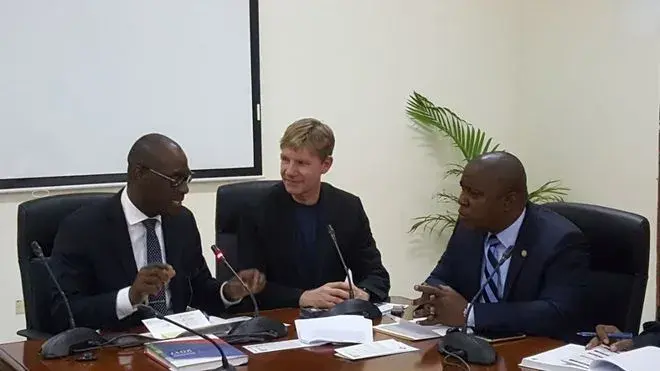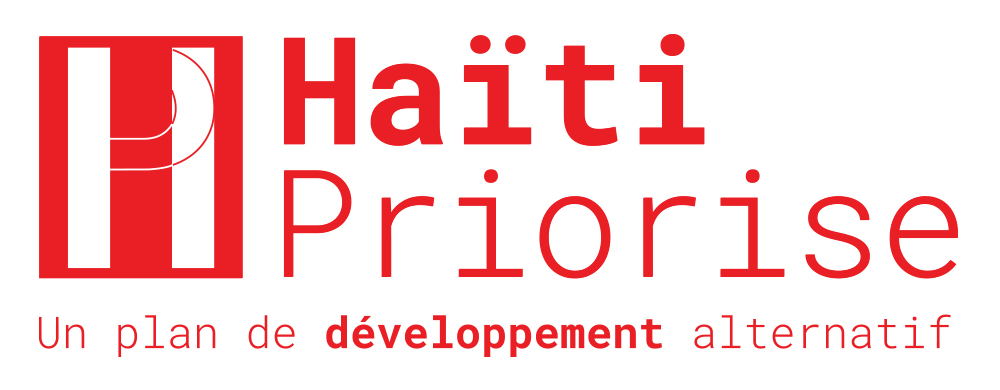Priorities for Haiti: Electricity Reform, Nutrition and Child Health
Published by

Port-au-Prince, Haiti - Electricity reform, child nutrition, and immunization should be prioritized by decision-makers, an eminent panel including Haitian economic experts and a Nobel laureate economist announced today, after studying new research written for Haiti Priorise.
Ketleen Florestal, P.J. Raymond Magloire, Kesner Pharel, and Vernon Smith considered 85 proposals to improve Haiti’s environmental, social and economic wellbeing, in 45 new research papers. Based on studying this evidence and interviewing the Haitian and international economists, the panel recommends five priorities:
- Reforming the electricity utility to create long-run savings of 4.7 billion gourdes per year.
- Fortifying wheat flour with micronutrients to prevent 150 newborn deaths and 260,000 cases of anemia each year.
- Increasing access to early childhood education for 258,000 children per year, leading to a lifelong increase in earnings worth 115 billion gourdes.
- Training first responders to save 700 lives each year.
- Amplifying infant immunization coverage to 90%, to save 16,500 lives over the next nine years.
The research and findings of Haiti Priorise make very useful reading not just for the government, but for donors and NGOs – and to anyone with an interest in this nation’s future”
said Ketleen Florestal, Eminent Panel member and advisor to the Executive Directors of Haiti at the World Bank Group and the IMF.
Creating the conditions for an autonomous, accountable and efficient electric utility was the panel’s top recommendation. The proposal, studied by Juan Belt, Bahman Kashi, and Jay Mackinnon of Limestone Analytics, would cost 2.25 billion gourdes. It will substantially reduce the losses experienced by Electricité d’Haïti. This will generate benefits to Haiti worth 49.2 billion gourdes. The research shows that each gourde or dollar spent on this proposal would generate benefits worth 22 gourdes.1
Kesner Pharel, Eminent Panel member and renowned Haitian economist said,
There are many infrastructure needs, but among them electricity reform is indispensible. Reform will be challenging, but it is vital. A poor-functioning electricity sector puts brakes on the Haitian economy. We must remove this constraint to economic growth. Freeing up $200 million dollars per year means this money could be better spent on areas like health and education, to achieve a lot more for Haiti.”
The second top-ranked proposal is adding micronutrients to a staple food item such as wheat, at the point that it is milled or bagged in Haiti.
Philome Joseph Raymond Magloire, Eminent Panel member and former governor of the Central Bank (BRH) said,
Wheat flour fortification is a very cheap intervention, involving cooperation between the government and Haitian industry to ensure that micronutrients are added at the mill. I find that there is a compelling case that fortifying a staple food product could make a significant difference to an important nutritional problem."
Ketleen Florestal said the proposal is
worthy of prioritization because of their transformative potential: if carried out correctly in the Haitian context, this could improve the diets and health of many people and remove a significant disadvantage from a significant portion of the population.”
Several of the top-ranked proposals would have a transformative impact at a very early stage of a child’s life. Vernon Smith, Eminent Panel member and Nobel Laureate said:
There is a very short window during which we can make a huge difference to a child’s entire life. The Haiti Priorise research highlights the need to make sure that we seize life-changing opportunities in nutrition, health and education.”
The Haiti Priorise project follows the Copenhagen Consensus methodology, used for more than a decade to identify the costs and benefits of different ways to respond to global, regional and national challenges.
Bjorn Lomborg, Copenhagen Consensus Center director said,
Like all nations, Haiti has limited resources and prioritization among potentially unlimited interventions is needed. Understanding the costs and benefits of different proposals can improve the public conversation about priorities. These findings create a compelling case for decision-makers to focus more attention on phenomenal investments where a small amount could achieve huge and lasting effects.”
Philome Joseph Raymond Magloire said,
By considering the input of the government, businesses and others, and taking a careful look at many hundreds of proposals, Haiti Priorise has ensured that it is grounded in the Haitian context.”
Haiti Priorise is a research project funded by the Government of Canada. Haïti Priorise has worked with more than 700 sector experts representing the government, donors, think-tanks, universities and NGOs, and with 50 economists from Haïti and abroad to identify and study 85 concrete proposals that would improve the nation’s social, economic and environmental wellbeing. Forty-five research papers, available online, were written and peer-reviewed by academics and sector experts.

